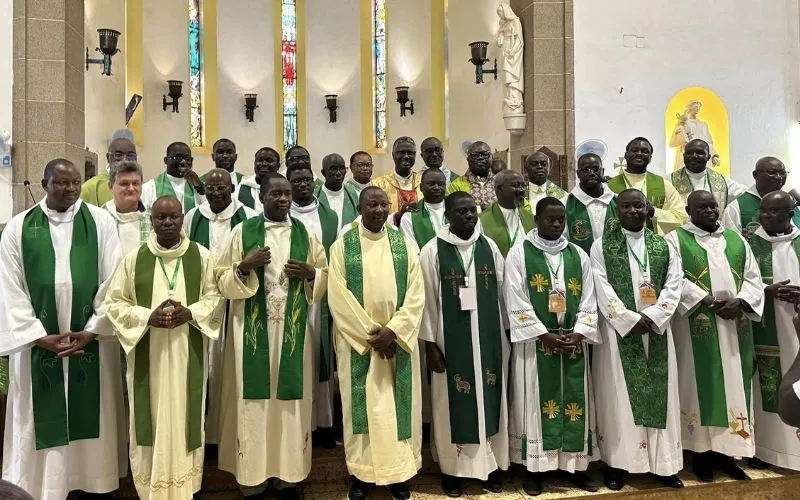Catholic priests from Guinea Conakry, Gambia, Sierra Leone, Ivory Coast, Benin, Togo, Senegal, Guinea Bissau, Mauritania, Burkina Faso, and Niger met for the conference that was themed “The prophetic role of priests in the face of intolerance and ethnic-religious instrumentalization in sub-Saharan Africa”.
The priests acknowledged the escalation of ethnic and religious-based conflicts in the region, and deliberated on ways to end them
In his presentation at the beginning of the conference, Fr. Domingos Ca, the Professor of Biblical Theology at the Major Seminary of Bissau blamed the escalation of violence and other forms of conflicts in West African countries on the failure to treat individuals and groups in the region with dignity.
“Although it is not within our remit to make an in-depth analysis of the situation in our sub-region, we have nevertheless been able to see that the sometimes lack of recognition of the equal dignity and rights of individuals and groups leads to conflicts and injustices which, from a distance, degenerate into bloody and irreversible ruptures within families and groups,” Fr. Domingos said.
Earlier, Archbishop Edward Tamba Charles of Sierra Leone’s Archdiocese of Freetown had sent a goodwill message to the conference, expressing regret that many countries in West Africa are experiencing divisions on tribal lines, and that some of these divisions manifest in the Church.
The archbishop urged the priests to propose ways to end the conflicts at the Guinea-Bissau conference.
“Our West African sub-region is witnessing a surge of conflicts of various kinds, including those of ethnic and religious nature. In such a situation, we priests have a vital role in spearheading conflict resolution and reconciliation because we are ordained to be ministers of a Church established by Jesus Christ to be a sacrament of union with God and of unity of all men and women,” Archbishop Tamba Charles said.
In their list of recommendations following the conference, the priests proposed synergy from the heads of states in the region and the Church. They urged governments, particularly, to remain attentive to the people’s needs, and to promote peace and justice.
The priests urged Bishops in the region to strengthen education in religious and moral values and to be effective agents of peace, reconciliation, and national cohesion.
The Priests further urged the laity to desist from exploiting social media platforms to cause divisions, and to remain firm against political, tribal, and religious-based divisions.








